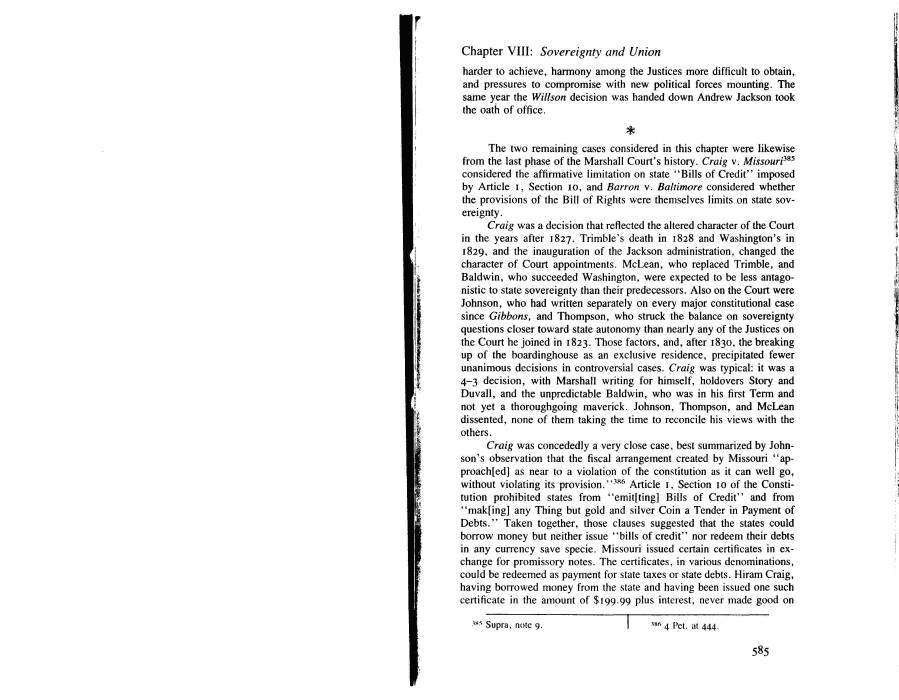|
Chapter VIII: Sovereignty and Union
harder to achieve, harmony among the Justices more difficult to obtain,
and pressures to compromise with new political forces mounting. The
same year the Willson decision was handed down Andrew Jackson took
the oath of office.
The two remaining cases considered in this chapter were likewise
from the last phase of the Marshall Court's history. Craig v. Missouri3*5
considered the affirmative limitation on state "Bills of Credit" imposed
by Article I, Section 10, and Barron \. Baltimore considered whether
the provisions of the Bill of Rights were themselves limits on state sov-
ereignty.
Craig was a decision that reflected the altered character of the Court
in the years after 1827. Trimble's death in 1828 and Washington's in
1829, and the inauguration of the Jackson administration, changed the
character of Court appointments. McLean, who replaced Trimble, and
Baldwin, who succeeded Washington, were expected to be less antago-
nistic to state sovereignty than their predecessors. Also on the Court were
Johnson, who had written separately on every major constitutional case
since Gibbons, and Thompson, who struck the balance on sovereignty
questions closer toward state autonomy than nearly any of the Justices on
the Court he joined in 1823. Those factors, and, after 1830, the breaking
up of the boardinghouse as an exclusive residence, precipitated fewer
unanimous decisions in controversial cases. Craig was typical: it was a
4-3 decision, with Marshall writing for himself, holdovers Story and
Duvall, and the unpredictable Baldwin, who was in his first Term and
not yet a thoroughgoing maverick. Johnson, Thompson, and McLean
dissented, none of them taking the time to reconcile his views with the
others.
Craig was concededly a very close case, best summarized by John-
son's observation that the fiscal arrangement created by Missouri "ap-
proach[ed] as near to a violation of the constitution as it can well go,
without violating its provision."386 Article i, Section 10 of the Consti-
tution prohibited states from "emitting] Bills of Credit" and from
"mak[ing] any Thing but gold and silver Coin a Tender in Payment of
Debts." Taken together, those clauses suggested that the states could
borrow money but neither issue "bills of credit" nor redeem their debts
in any currency save specie. Missouri issued certain certificates in ex-
change for promissory notes. The certificates, in various denominations,
could be redeemed as payment for state taxes or state debts. Hiram Craig,
having borrowed money from the state and having been issued one such
certificate in the amount of $199.99 plus interest, never made good on
Supra, note 9.
386 4 Pet. at 444.
585
|

